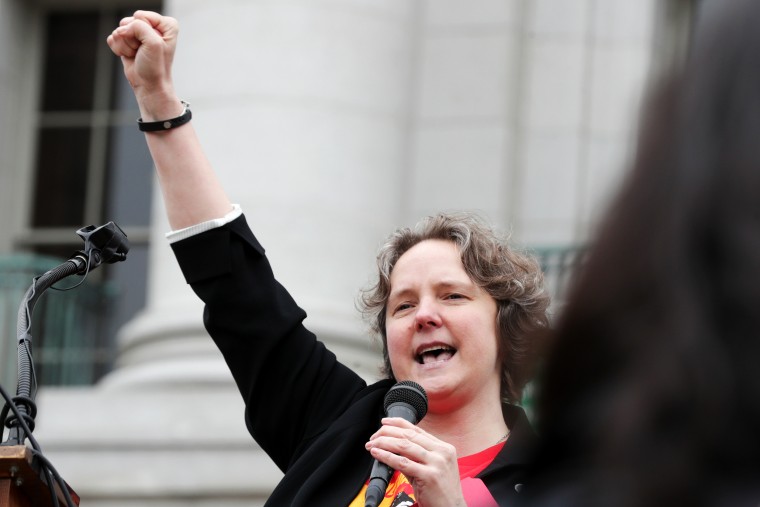April 15, 2024
Money for All: The Growing Reach of Free Cash Programs in Cities Fighting Poverty
 Programs providing free cash to individuals experiencing poverty have gained traction in various cities across the country as a means to strengthen the social safety net and address economic inequality. By offering direct financial assistance, these initiatives aim to empower individuals to meet their basic needs and improve their financial well-being.
One such program is the Stockton Economic Empowerment Demonstration (SEED) in Stockton, California. Launched in 2019, SEED provides 125 randomly selected residents with $500 monthly cash payments for 18 months with no strings attached. The goal of the program is to evaluate how the provision of a guaranteed income can benefit low-income individuals and families. Preliminary results have shown that recipients were able to secure stable housing, pay off debts, and invest in their education and career advancement.
In Oakland, California, the Guaranteed Income Pilot Program is set to provide 600 families with $500 monthly cash payments for 18 months. This initiative, funded by private donations and philanthropic organizations, seeks to test the effectiveness of direct cash transfers in reducing financial stress and improving overall well-being. By giving families the flexibility to use the money as they see fit, the program aims to address the root causes of poverty and inequality.
Furthermore, cities like Saint Paul, Minnesota, and Jackson, Mississippi, have also launched free cash programs to support residents facing economic hardship. These initiatives underscore the growing recognition of the need for alternative approaches to traditional social assistance programs. By providing unrestricted cash transfers, cities can empower individuals to make choices that best address their unique circumstances and immediate needs.
The concept of free cash programs as a tool for poverty alleviation is not a new one, with proponents arguing that direct financial assistance can be more effective and efficient in supporting individuals and families in need. By bypassing bureaucratic red tape and restrictions, these programs offer a simple and direct solution to the complex issue of poverty.
Critics, however, raise concerns about the sustainability and long-term impact of free cash programs. They argue that providing unconditional cash payments may disincentivize individuals from seeking employment or pursuing other avenues for economic advancement. Additionally, questions have been raised about the scalability of these initiatives and their potential to address systemic issues contributing to poverty.
As more cities explore the implementation of free cash programs, it is essential to consider the diverse needs and challenges of individuals experiencing poverty. By evaluating the outcomes and impacts of these initiatives, policymakers can gain valuable insights into the effectiveness of direct financial assistance as a means to promote economic stability and social equity. Ultimately, the expansion of free cash programs signals a shift towards more innovative and inclusive approaches to supporting marginalized communities and building a more equitable society.
Programs providing free cash to individuals experiencing poverty have gained traction in various cities across the country as a means to strengthen the social safety net and address economic inequality. By offering direct financial assistance, these initiatives aim to empower individuals to meet their basic needs and improve their financial well-being.
One such program is the Stockton Economic Empowerment Demonstration (SEED) in Stockton, California. Launched in 2019, SEED provides 125 randomly selected residents with $500 monthly cash payments for 18 months with no strings attached. The goal of the program is to evaluate how the provision of a guaranteed income can benefit low-income individuals and families. Preliminary results have shown that recipients were able to secure stable housing, pay off debts, and invest in their education and career advancement.
In Oakland, California, the Guaranteed Income Pilot Program is set to provide 600 families with $500 monthly cash payments for 18 months. This initiative, funded by private donations and philanthropic organizations, seeks to test the effectiveness of direct cash transfers in reducing financial stress and improving overall well-being. By giving families the flexibility to use the money as they see fit, the program aims to address the root causes of poverty and inequality.
Furthermore, cities like Saint Paul, Minnesota, and Jackson, Mississippi, have also launched free cash programs to support residents facing economic hardship. These initiatives underscore the growing recognition of the need for alternative approaches to traditional social assistance programs. By providing unrestricted cash transfers, cities can empower individuals to make choices that best address their unique circumstances and immediate needs.
The concept of free cash programs as a tool for poverty alleviation is not a new one, with proponents arguing that direct financial assistance can be more effective and efficient in supporting individuals and families in need. By bypassing bureaucratic red tape and restrictions, these programs offer a simple and direct solution to the complex issue of poverty.
Critics, however, raise concerns about the sustainability and long-term impact of free cash programs. They argue that providing unconditional cash payments may disincentivize individuals from seeking employment or pursuing other avenues for economic advancement. Additionally, questions have been raised about the scalability of these initiatives and their potential to address systemic issues contributing to poverty.
As more cities explore the implementation of free cash programs, it is essential to consider the diverse needs and challenges of individuals experiencing poverty. By evaluating the outcomes and impacts of these initiatives, policymakers can gain valuable insights into the effectiveness of direct financial assistance as a means to promote economic stability and social equity. Ultimately, the expansion of free cash programs signals a shift towards more innovative and inclusive approaches to supporting marginalized communities and building a more equitable society.
If you would like to delve into the world of investment topics , go to our partner project Wall Street Wizardry


